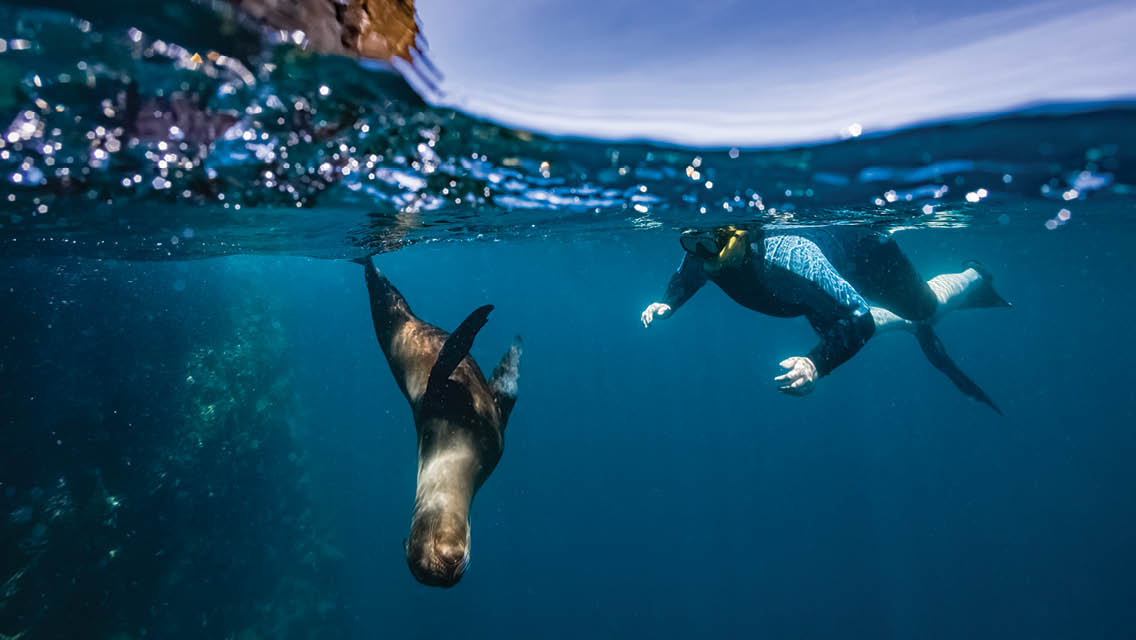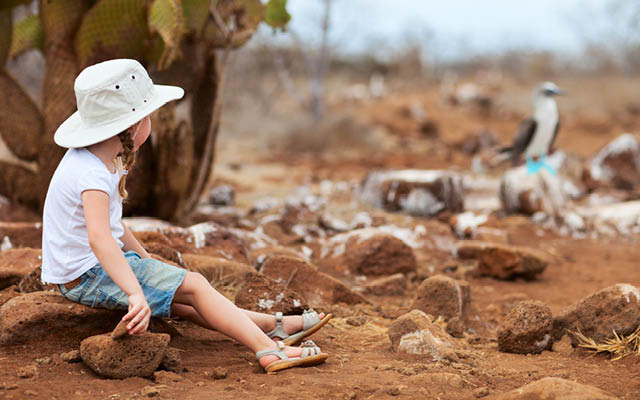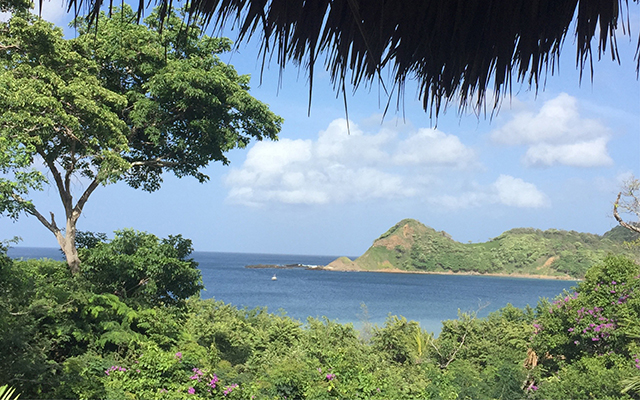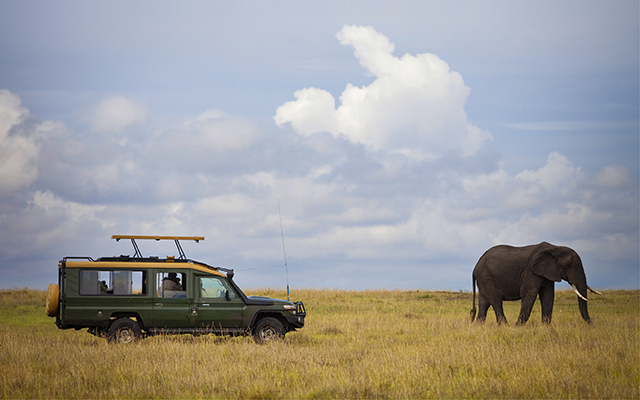When the COVID-19 pandemic hit and most travel screeched to a halt, I began reflecting on my favorite travel memories: snorkeling in the Galápagos Islands as penguins and sea lions streaked past; eating yusheng, a Singaporean fish specialty served during Lunar New Year; watching citizens of Antigua, Guatemala, carry vast floats through the streets on Palm Sunday.
This was more than just nostalgia: These memories are part of who I am.
“Our desire to explore will never cease,” says Jeff Greenwald, cofounder and director of EthicalTraveler.org. “We earthlings have unquenchable curiosity about how other humans work, eat, play, and live.”
Before the pandemic, 10.3 percent of jobs worldwide were in tourism, according to the World Travel and Tourism Council. As they waited out the pandemic, millions of unemployed taxi drivers, restaurant employees, diving instructors, tour guides, hotel housekeepers, flight attendants, and shopkeepers worried whether travelers like me would ever return.
Now that many of us are spreading our wings again, most, but not all, tourism jobs are returning — along with their benefits and consequences.
When utilities, water supplies, roads, and railways are developed or improved for visiting tourists, local people benefit.
Yet tourism can also contribute to increased crime, drive up costs of food and housing, and sometimes result in overtourism — the point at which unsustainable numbers of visitors harm local ecosystems and deplete local resources.
Tourism produces an estimated 8 percent of global greenhouse-gas emissions, mainly from cruise ships, airplanes, tour buses, and cars. Hotels, swimming pools, and golf courses use substantial amounts of water (in short supply in many places) and generate garbage and sewage.
The balance between supporting tourism economies and preserving local cultures and environments is tricky to navigate. Whether we’re camping in the backcountry, staying in a Croatian hostel, or attending a meeting at a five-star Tokyo hotel, our presence affects the environment, including its people, plants, and animals.
Still, we can moderate how much of an impact we make on our chosen destinations. We can become more aware of how our behavior, attitudes, and decisions affect our hosts — some of whom may lack our economic, cultural, or environmental advantages.
“Might we engage more honestly with a challenging and unequal world, realizing that it existed long before we arrived at our destination, and that it’s likely to persist long after we go home?” asks Anu Taranath, PhD. It’s a question she explores in her book Beyond Guilt Trips: Mindful Travel in an Unequal World and in her work as an educator and facilitator.
Instead of trying to be “good” travelers, Taranath suggests we strive to be better travelers. These five suggestions can help with that.
1) Select a Destination That Reflects Your Values
Who hasn’t been tempted to hop on a plane after seeing photos of a dreamy destination? Before buying a ticket, however, look beyond what’s visible in pretty Instagram pictures, and consider the effect that your visit might have.
“There’s no simple definition for what makes a travel destination ‘ethical,’” says Jonathon Day, PhD, associate professor of tourism at Purdue University. Yet he believes we can still make ethical choices: “Examine your values and make your vacation reflect them.”
This involves opening our eyes to some features of travel we might rather avoid thinking about. Tourism often damages fragile ecosystems. Some hotels and resorts pay employees less than a living wage. A gorgeous region may have a terrible human-rights record, and overtourism (which would include you, if you go) may be destroying a place’s unique character or culture.
Still, leading with your values needn’t ruin the joy of travel. In fact, it may have the opposite effect — by deepening your engagement with a place.
Day recommends deciding what kind of trip you want to take (whether that’s a camping trip, a beach vacation, or a visit to a far-flung capital). Be concrete about what you care about (sustainability, human rights, supporting the local economy), and be flexible about where — and sometimes when — you go.
This approach allows you to plan an itinerary that satisfies both your personal ethics and your wanderlust.
Keep in mind that almost no destination will check every box, and the concept of sustainability in travel involves a complex mix of cultural, social, and environmental responsibility, says Day. “A hotel may be doing 10 environmental things really well, but it might not be paying its workers a living wage. So, is that hotel sustainable? It’s a tough issue because even the best hotel isn’t perfect. I think of it as a journey toward sustainability.”
This is why tuning in to your own values is so important. If environmental soundness is a top priority, you might choose that energy-efficient hotel — and then do your best to compensate for the low wages it pays by leaving large tips for workers. It won’t solve the structural problem, but it will mean you’re not contributing to it quite so much.
Visiting popular places during the off-season helps ease the stress on natural resources. You’re also likely to encounter fewer crowds, enjoy more flexibility with travel dates, and find lower prices and better availability.
Sometimes timing makes a difference. Visiting popular places during the off-season helps ease the stress on natural resources. You’re also likely to encounter fewer crowds, enjoy more flexibility with travel dates, and find lower prices and better availability.
Off-season tourism has advantages for locals too: It offers steady employment year-round rather than just a few months a year.
There are plenty of resources to help you make more informed choices about potential destinations. Green Destinations uses a set of 30 criteria to evaluate the sustainability performance of destinations around the world. For instance, if Aspen, Colo., is on your itinerary, you’ll read that the town is predominantly “sufficient” for human rights, water stewardship, and natural-heritage conservation, with “partially sufficient” scores for climate action and equity for all.
EthicalTraveler.org creates an annual list of its top 10 best ethical destinations. The 2023 list includes Costa Rica, Chile, and Botswana.
2) Consider Your Transportation Options
When my husband and I visited Fiji in 1994, we rode a chicken bus to a remote beach with our luggage strapped to the roof. We shared the ride with local workers whose ancestors were brought to the island because of British colonialism. That bus ride was an illuminating experience, and more climate-friendly than taking a propeller plane, but the choking gas fumes were still bad for Fiji’s air quality.
In short, travel always produces a carbon footprint, though today we have a few more options to help control our footprint’s size. Traveling by train produces about half the carbon dioxide of air travel. At your destination, you can always walk, rent a bike, or use public transportation rather than rent a car.
And if you do fly or drive, you can purchase carbon offsets. These credits provide financial support to environmental projects, such as tree planting, that help compensate for a trip’s emissions.
Until aviation and other forms of transportation get off fossil fuels, says Day, carbon offsets are an important tool. He recommends the nonprofit organization Cool Effect; Terrapass is another.
Whatever carbon-offsetting program you use, be sure it’s certified by an independent auditor.
“In an ideal world, there would be other, cleaner ways of getting around,” says Greenwald. “But right now, [planes are] how most people prefer to travel. Luckily, technologies like Zoom have made high-impact transportation less essential. But there’s never going to be a substitute for people meeting face-to-face or being in each other’s presence.”
3) Be a Respectful Guest
Visiting wildlife in the Galápagos Islands taught me a lot of things, including how to be a courteous guest. On our first day, our guide explained that we would be able to observe blue-footed boobies, giant tortoises, Sally Lightfoot crabs, and marine iguanas up close in their natural habitats — but only because these creatures have evolved without predators and didn’t fear humans.
There was a strict code of conduct: No food was allowed, and we had to stay at least six feet away from all wildlife, even when a curious sea lion pup chased us on the beach.
Using the principles of “leave no trace” can be another useful code of conduct: Don’t litter. Carry a reusable water bottle. Show consideration to others, whether they’re locals, wildlife, or fellow travelers. Be sure to learn some basic phrases in the local language (especially “please” and “thank you”), and familiarize yourself with local customs.
A little self-awareness goes a long way too. Travel is inherently unpredictable, and it helps to cultivate some patience and flexibility on the road. Greenwald emphasizes the importance of curbing anger and cultivating a sense of humor.
“Anger is a real issue for Westerners,” he notes. “And it never earns the respect of locals or defuses a bad situation.”
He recommends practicing humility. When you’re a guest in someone else’s home, listen to what others have to say before you speak. If you do express an opinion, resist the temptation to present it as the absolute truth. Phrases like “I believe” or “my view is” show respect for the other person’s point of view, which may be very different from yours.
A good guest also respects the dignity of those they encounter. Travel can often bring us eye to eye with the world’s inequities, and witnessing unfamiliar levels of poverty can be uncomfortable. But rather than reacting with guilt or pity, Taranath suggests focusing on what we all have in common.
“We live in an individualized culture that doesn’t teach us to pay close attention to other people’s lives. Conscious travel is about unraveling some of that individualism,” she says. “Take a pause to notice: I’m not the only one whose life might be challenging.
“When meeting people who seem unlike you, try moving toward the notion that My life and your life might not overlap often, but we’re actually connected in some surprising ways.”
4) Support the Local Economy
I’m not usually a big shopper, but I found the handcrafted textiles in the Santiago Atitlán market in Guatemala breathtaking, and I loved meeting the women who made them. One did her weaving on a portable backstrap loom just as her foremothers did for 2,500 years. Bargaining is customary in Guatemala, and the occasional haggle gave me a chance to practice my rusty Spanish — but I wasn’t a hard sell. Compared with most Guatemalans, I was wealthy; paying their asking price showed the women that I valued their artistry.
Money is always part of the travel equation, and Greenwald notes that bargaining is best done with maximum respect for the seller as well as for the region’s economic realities. “The final transaction should leave both buyer and seller satisfied and pleased,” he says. “It’s not a bargain if either person feels exploited, diminished, or ripped off.”
Greenwald advises familiarizing yourself with the local currency and the current exchange rate before you visit. (And if there’s wireless service at your destination, you can check daily exchange rates on your phone.)
Bargaining is best done with maximum respect for the seller as well as for the region’s economic realities.
Often, what sounds like a giant sum in another currency may not be all that much in dollars. Think twice before haggling over an amount that won’t make a difference in your life but might make a difference in someone else’s.
Show your support by choosing locally owned hotels, shops, and restaurants. Direct your tourist dollars into the community rather than into an international bank account; you’ll be more likely to meet, converse with, and possibly befriend a local person than you would be at a chain hotel or restaurant. Locals tend to have better suggestions for things to see, eat, and do as well.
If you do stay at a chain hotel, you can help sustain local economies by choosing one that plays a positive role in its community. Look for a statement of corporate social responsibility on the website, or ask a manager how the company gives back. If its efforts sound legitimate (such as hosting programs that support local schools or conservation efforts), affirm the company and encourage it to do more. Customer feedback lets companies know their commitments — or lack of them — are being noticed.
The question of whether to stay at a short-term rental, like an Airbnb, is a tricky one. An abundance of short-term rentals in one location can drive up housing costs by depleting the amount of housing available to locals. Many people who live in popular destinations also balk at having a rotating cast of visitors next door instead of a reliable set of neighbors. This changes the character of a community.
On the flip side, vacation rentals offer landowning locals a chance to profit from the tourist economy, and they can be more affordable than hotels. If you end up at a short-term rental, direct some of your tourist dollars into other local businesses.
Think Like a Traveler at Home
After Hurricane Ian, I donated to the Bailey-Matthews National Shell Museum on Sanibel Island, Fla., because I remembered gathering seashells on those pretty beaches as a kid. This is just one example of how travel makes us part of a larger global community; we continue to feel connected to places we visited and the people who live there.
This shift in perspective can change the way we relate to our own neighbors.
“The power of travel is meeting people unlike you,” says Taranath. “Yet I know many who reserve meeting different people only for when they’re abroad.”
Mindful travel, she adds, is about removing barriers between here and there. We can ask ourselves, Why would I think about inequity when I’m in Kenya but not when I’m home in Seattle?
Guilt and shame aren’t helpful when acknowledging that we enjoy more opportunities, money, or privileges than some others, Taranath says. But being aware of our advantages is useful.
“Awareness means having the resilience to be conscious of our privileges without sinking into a pit of guilt,” she says. “Instead of assuming we’ve done something wrong, we acknowledge that we live in an unequal world.”
This allows us to see other people as equals, even if our circumstances are different.
In the end, we’re always on some kind of journey, and what matters is that we truly inhabit the place we’re in — even if we’re there for only a half-hour.
When I was able to tour the Anne Frank house in Amsterdam, I spent about 30 minutes in the Secret Annex. I saw the swinging bookcase that disguises the entrance; Anne’s postcards of movie stars; the penciled height markings on the walls. People from all over the globe come to witness the universe of human life in that one tiny space.
That is why we travel: It reminds us how connected we are to everyone, and to everything.
Travel in Place
Given the economic and environmental costs of travel, sometimes the most ethical choice is to stay home. That doesn’t mean you can’t expand your horizons.
- Explore your own community through the eyes of a tourist. Check out museums, parks, or other local landmarks that you’ve wondered about but never visited.
- Go to a local ethnic market or restaurant and sample some new-to-you foods.
- Take a daylong walk without a destination. See what you find.
- Sign up for a language class at a community center. Join a conversation group to practice.
- Invite friends over to cook Chinese, French, or Indian food, and watch a subtitled film from that country.
- Stream traditional music from around the world.
- Read some great travel memoirs.
- Watch movies about characters on a journey. Stunning cinematography is a bonus: The Lord of the Rings (New Zealand), Eat Pray Love (Italy, India, Bali), The Way (Spain), Everything Everywhere All at Once (the multiverse).
Should I Stay, or Should I Go?
Part of ethical travel requires thinking carefully about when, where, and whether you go. Ask yourself these questions before you book:
- Does this experience require physical travel? If traveling for work, could I accomplish these goals by teleconferencing?
- Am I visiting at a time of year when my presence will least disrupt wildlife and ecosystems? It’s best to avoid camping or hiking in areas where animals are mating, nesting, or raising young.
- Will the destination benefit from my presence as much as I’ll benefit from traveling there? Some places are strained by overtourism; others might need tourism dollars during low seasons.
This article originally appeared as “The Thoughtful Traveler” in the July/August 2023 issue.





This Post Has One Comment
I am a grateful traveler for so many of the reasons Laurel Kallenbach illustrates in this terrific piece. And she reminds us, too, of the deeply important lesson: “In the end, we’re always on some kind of journey, and what matters is that we truly inhabit the place we’re in — even if we’re there for only a half-hour.” Thank you!